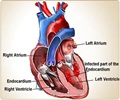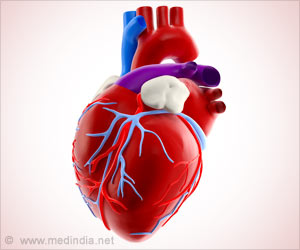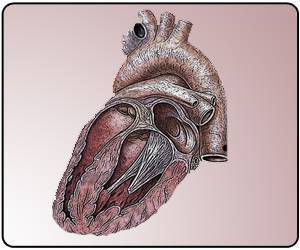Mobile health, the practice of medicine with portable and smartphone-based technologies, is a rapidly expanding area in healthcare, says an American researcher.

“Mobile health, the practice of medicine with portable and smartphone-based technologies, is a rapidly expanding area in healthcare,” commented primary investigator Dr.Sanjeev Bhavnani of Scripps Health, Scripps Translational Science Institute in San Diego, California. “Our work sought to investigate the incremental benefit of portable devices such as the smartphone-connected iECG and point-of-care laboratory tests to handheld echocardiography through the design of mobile health clinics that were created to provide the diagnosis and treatment among a variety of patients with structural heart disease. These advances in mobile health are poised to transform many aspects of patient care.”
Researchers on the study, A Randomized Trial Integrating Pocket Ultrasound with mHealth Diagnostics in Modern Structural Heart Disease Clinics, included Dr.Bhavnani of Scripps Health, Scripps Translational Science Institute in San Diego, CA; Srikanth Sola and Ashwin Venkateshvaran of Sri Sathya Sai Hospital of Higher Medical Sciences in Whitefield, India; David Adams of Duke University Medical Center in Durham, NC; and Partho P. Sengupta of Mount Sinai Medical Center in New York, NY.
Dr. Bhavnani will present this research during the prestigious 2015 Arthur E. Weyman Young Investigator Award Competition on Monday, June 15, from 8:00 am to 9:30 am in Ballroom B, where the four best abstracts submitted compete in front of a panel of luminaries for cash prizes and international recognition. A poster based on the results of the study will be displayed in the Poster and Exhibit Hall from Saturday June 13 through Monday June 15 at the American Society of Echocardiography (ASE) 26th Annual Scientific Sessions at the Hynes Convention Center, Boston. This research, along with over 400 other abstracts presented at the conference, demonstrates ASE renewed focus on innovation, as reflected in the Society new three-year goals, which include the aim to facilitate the development and application of novel cardiovascular ultrasound technology.
As the largest global organization for cardiovascular ultrasound imaging, the American Society of Echocardiography (ASE) is the leader and advocate, setting practice standards and guidelines. Comprised of over 16,000 physicians, sonographers, nurses, and scientists, ASE is a strong voice providing guidance, expertise, and education to its members with a commitment to improving the practice of ultrasound and imaging of the heart and cardiovascular system for better patient outcomes.
Advertisement










